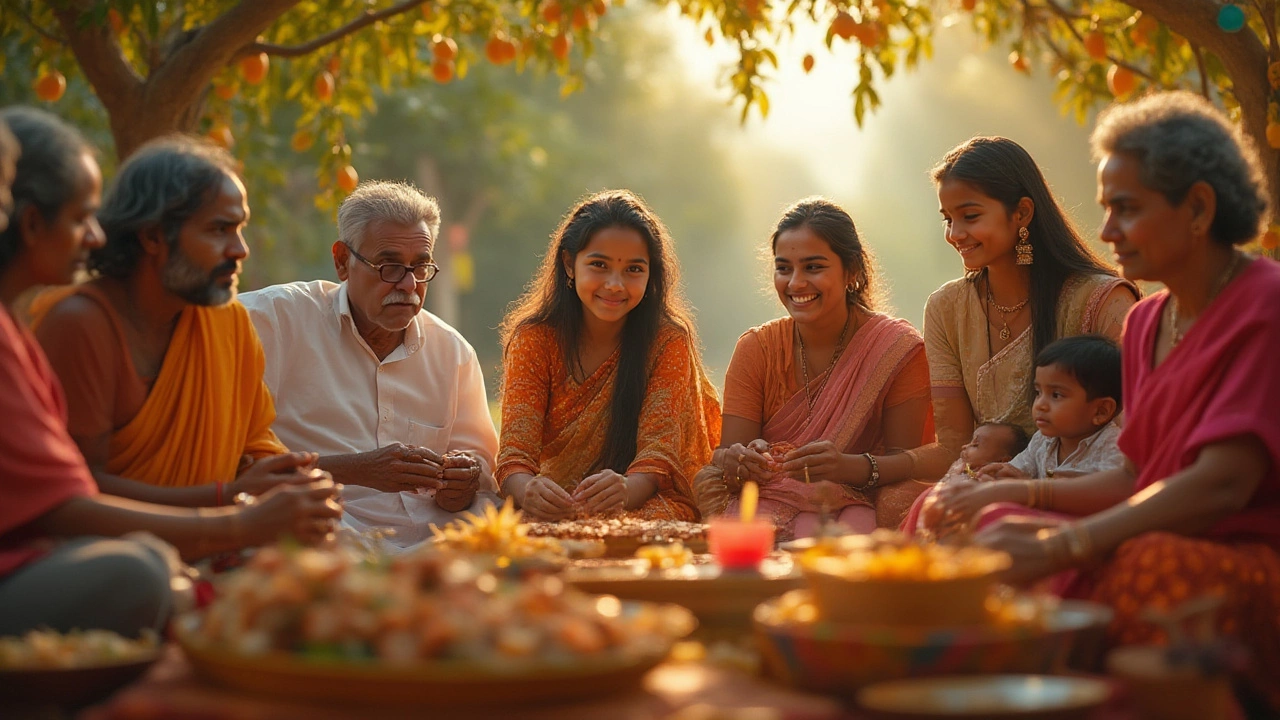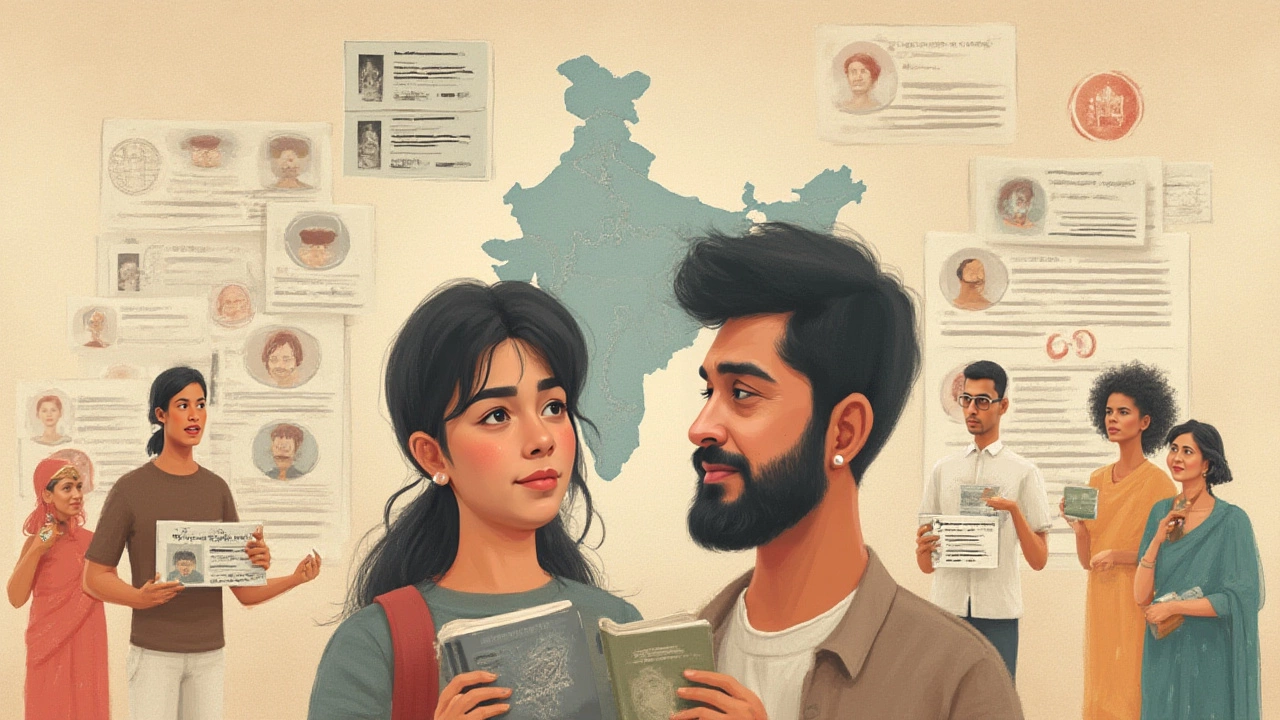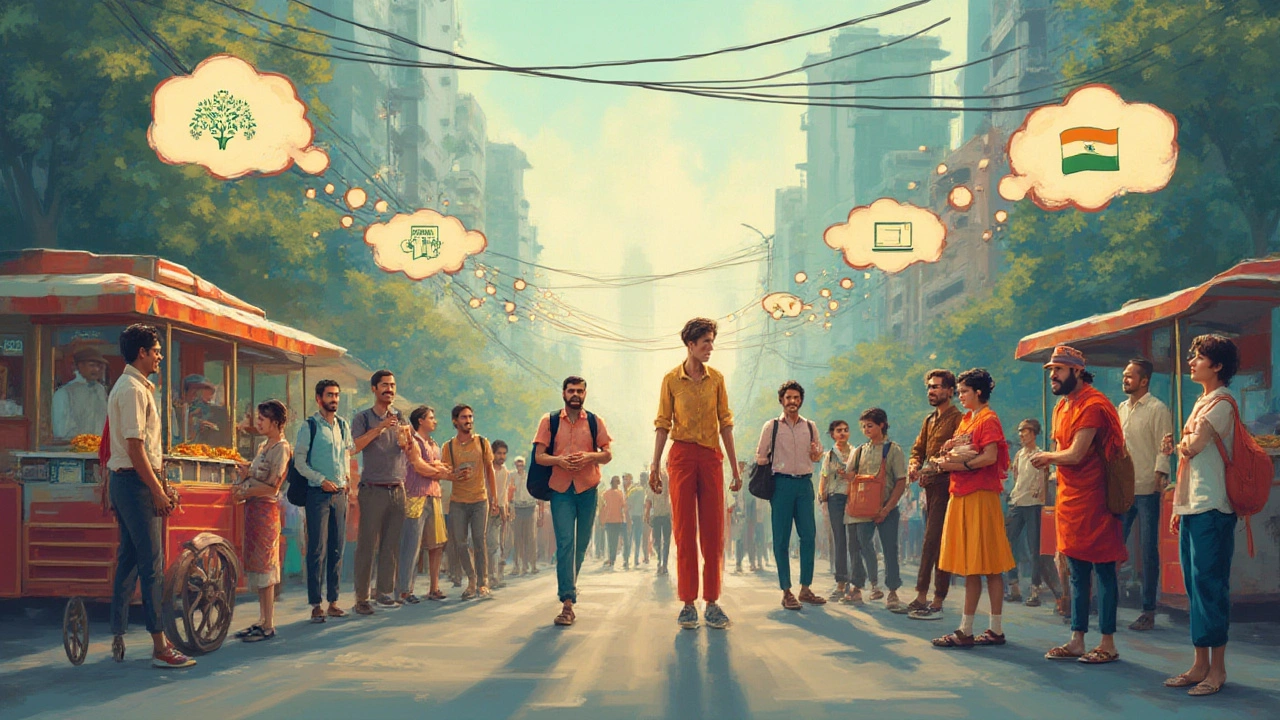Indian Ethnicity vs. Nationality: What Does 'Indian' Really Mean?
 Jul, 5 2025
Jul, 5 2025
Ever notice how people toss around the word “Indian” as if it means the same thing everywhere, every time? But here’s the thing: what someone means by ‘Indian’ can change depending on whether they’re talking about identity, family roots, or where your passport comes from. The confusion is real—so real that you’ll even catch governments tripping over these definitions. There are folks born outside India who still call themselves ‘Indian,’ and there are millions living in India with wildly different backgrounds who barely recognize each other's traditions. What’s the deal? Are we talking about ethnicity here, nationality, religion, or some mashup of everything?
The Roots of Indian Identity: An Ethnicity or Something Else?
Most people assume “Indian” is some straightforward category, but start peeling back the layers, and you’ll see it’s anything but simple. Ethnicity is all about shared ancestry, language, culture, and sometimes even physical traits. By that logic, being ‘Indian ethnic’ should mean folks share the same traditions, maybe even look alike, or at least speak the same language at home. But does that line up with the reality?
Here’s a number for you: as of 2021, India officially recognizes 121 languages and over 2,000 distinct ethnic groups. Grab a train in Mumbai, and you'll find people speaking Hindi, Marathi, Gujarati, Tamil, Urdu, and more—all headed to the same office district. Step into family homes, and you might be smelling different spices, watching different movies, or even worshipping different gods. So lumping all these groups under one ‘Indian’ ethnicity is like calling every dog a Labrador. Doesn’t really fit, does it?
And let’s not forget about the Indian diaspora. In the UK, the U.S., Canada, and South Africa, you’ll meet millions who identify as Indian, even if they’ve never, ever lived in India. Take the case of the Indo-Caribbean community: their ancestors left India for the Caribbean in the 19th century, and their experience is wildly different from someone living in, say, Kolkata or Delhi. Yet, they might tick the ‘Indian’ box when filling out forms.
So, is ‘Indian’ really an ethnicity? If you judge by the textbook definition—people who share common language, heritage, appearance, or ancestry—India just doesn’t tick all the ethnic boxes. Indian identity lands more in the zone of a ‘national identity’—a label held by people within the legal borders of India, or by anyone with roots that trace back there, however winding that path may be.

Nationality Explained: Laws, Passports, and Reality Checks
Now let's talk hard facts: nationality is what the law recognizes. If you’re legally a citizen of India, you’re Indian—at least on paper, and at every airport customs line. This is about paperwork, not bloodlines. India's Constitution says anyone born in the country between January 26, 1950, and July 1, 1987, is automatically Indian, even if their parents weren’t. After that, there are more technical hoops about where your folks were born, naturalization, and residency. The rules are strict—India doesn’t allow dual citizenship, so if you become a US or UK citizen, you technically lose your Indian nationality.
But here's where it gets interesting: as per data from the Indian Ministry of External Affairs, there are more than 32 million people of Indian origin living outside India. They may not hold Indian passports (because, as mentioned, India doesn't allow dual citizenship), but many still identify as Indian because of their heritage. The Indian government even issues an Overseas Citizen of India (OCI) card, which gives holders lifelong visa-free travel to India and other perks, but it’s not the same as citizenship. So, nationality is mostly about legal status, not identity or ethnicity.
If you want to get technical, here’s how Indian nationality breaks down:
- By Birth: Born in India during certain years, or to Indian parents (check those year-based rules).
- By Descent: If you’re born outside India, but at least one parent is Indian, you can register.
- By Registration/Naturalization: Live in India long enough and meet a stack of requirements—you can apply.
Here’s a quick glance at some stats that paint the picture:
| Type | Numbers | Key Fact |
|---|---|---|
| Recognized Official Languages | 121 | India doesn’t have a single 'Indian' language |
| Scheduled Tribes | 705 | As per 2011 Census data |
| Ethnic Groups | 2,000+ | Ranges from small tribal communities to massive groups like Punjabis |
| Indian Diaspora | 32 million+ | Largest diaspora globally in 2023 |
| Religions Practiced | 6 major & dozens minority | Hindus, Muslims, Christians, Sikhs, Buddhists, Jains, Parsis |
This wild mix means Indian nationality is mostly about citizenship—your legal standing. It doesn’t care if you’re Tamil, Bengali, Bihari, or Sindhi. All that matters is paperwork.

Living the Indian Experience: More than Just Boxes on a Form
If you’ve ever chatted with someone who calls themselves Indian, try asking them what it means. Odds are, you’ll get a different answer depending on when and where they grew up. For some, it’s all about being born and raised in India—celebrating Diwali with fireworks or Holi with colors, speaking Hindi or Telugu at home, obsessing over cricket, and going to school where they had to learn English and another Indian language. For others, it’s about their parents’ roots—even if they’ve only visited India once, or maybe not at all.
Look at the U.S. Census forms: ‘Indian’ appears under Asian or South Asian, but that’s not really a hint about culture, beliefs, or specific traditions. It’s just a broad label. Then there’s the wild card: Native Americans in the U.S. used to be called ‘Indian’ because of a centuries-old labeling gaffe by Christopher Columbus, who thought he’d reached India. Confusing, right? Even today, a Google search for “Indian” will throw you images from both South Asia and North America.
No matter what, people carry a sense of Indian identity in personal ways. Food, movies, weddings, and spiritual beliefs link many members of the Indian diaspora back to their roots. Indian restaurants in London or Toronto might serve you a Punjabi-style curry, but the people running the place might have Tamil or Gujarati ancestors. It's all woven together in a colorful, often chaotic patchwork, but that's what gives it energy.
Need a tip for understanding where someone stands? It always helps to ask where in India their family came from, how long they or their family have lived abroad, and which parts of Indian culture pop up in their daily life. Don’t assume anything: being ‘Indian’ means different things to a Bollywood film star in Mumbai than to a Trinidadian teacher whose great-grandparents sailed away from India 150 years ago.
For practical reasons, if you're filling out forms or thinking about travel rules, remember: Indian nationality is always about your legal tie to the state of India—your citizenship. That’s what counts for getting an Indian passport, voting, or owning land. Indian ethnicity is a personal journey—sometimes rooted in ancestry, sometimes just in food, festivals, or distant memories. When in doubt, skip the stereotypes and get to know the person. That’s where the real meaning of “Indian” lives—messy, interesting, layered, and never boring.